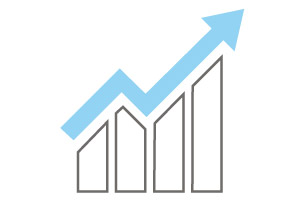Each week, we break down the latest U.S. economic reports, including what the results mean for the overall health of the economy. Here, you will find how economists’ forecasts compare with actual results, key takeaways to consider, as well as a list of what’s on tap for the week ahead.
Commonwealth
Monthly Market Risk Update: April 2023 [SlideShare]
My colleague Sam Millette, director, fixed income on Commonwealth’s Investment Management and Research team, helped me put together this month’s Market Risk Update. Thanks for the assist, Sam! Let’s take a closer look.
All Eyes on Earnings Season: What to Expect for Q1 2023
We are at the start of the period when companies release their results for the first quarter of 2023, known as earnings season. With everything going on—inflation, rate hikes, a labor shortage, the weakness of the dollar, a pending recession, the list goes on and on—the results are unusually uncertain this time around. Analysts are struggling to figure out exactly what all this means.
Economic Release Snapshot: Inflation Cools in March
Each week, we break down the latest U.S. economic reports, including what the results mean for the overall health of the economy. Here, you will find how economists’ forecasts compare with actual results, key takeaways to consider, as well as a list of what’s on tap for the week ahead.
The Dollar, Digital Currency, and the Fed: Look Beyond the Headlines
Following up on Tuesday’s discussion of why the dollar isn’t collapsing and will not do so, let’s take a look at some of the other panic memes showing up in our news feeds. This will be a range of quick hits, as there are a bunch to cover.
Economic Risk Factor Update: April 2023 [SlideShare]
My colleague Sam Millette, director, fixed income on Commonwealth’s Investment Management and Research team, helped me put together this month’s Economic Risk Factor Update. Thanks for the assist, Sam! Let’s take a closer look.









 Client Relationship Specialist
Client Relationship Specialist





 Ashley has been working in the customer service field since she started her first job at age 16. For the past ten years she worked in an office setting handling accounts payable and receivable as well as some receptionist work. She is very excited to learn more about the investment field.
Ashley has been working in the customer service field since she started her first job at age 16. For the past ten years she worked in an office setting handling accounts payable and receivable as well as some receptionist work. She is very excited to learn more about the investment field. Client Relationship Specialist II
Client Relationship Specialist II Vice President of Operations and Integrator
Vice President of Operations and Integrator Wealth Advisor
Wealth Advisor Senior Client Relationship Specialist
Senior Client Relationship Specialist Senior Wealth Advisor
Senior Wealth Advisor Wealth Advisor | Director of Business Development
Wealth Advisor | Director of Business Development Wealth Advisor
Wealth Advisor Senior Wealth Advisor / Registered Principal
Senior Wealth Advisor / Registered Principal Senior Wealth Advisor / Registered Principal
Senior Wealth Advisor / Registered Principal